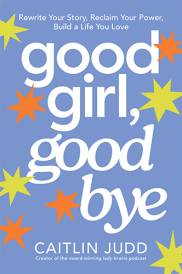Rehabilitation Centres
Alcohol tops illicit drugs in 2008 rehab centre admissions Co-existing mental health problems now the highest ever
Alcohol has again outstripped illicit drugs like heroin and ice to top the admissions list for leading NSW rehabilitation service Odyssey House and almost half of its clients have coexisting mental health problems, according to the organisation?s 2008 annual report. Alcohol was the principal drug of concern for almost one in three (29%) clients entering Odyssey House for rehabilitation during the 2007-08 financial year, up from 28 percent in 2007 and 2006 and 20 per cent in 2005. Seventy per cent of all clients listed alcohol among their reasons for seeking treatment. Forty-four per cent of clients in 2008 had a co-existing mental illness such as depression, anxiety, schizophrenia or bipolar disorder, up from 30 per cent in 2006 and 10 per cent in 1999.Odyssey House CEO James Pitts said the continuing steep rise in mental health problems was a most concerning trend, particularly as alcohol misuse and depression was the most common specific co-existing disorder among the organisation?s clients.
"If this upward trend continues, more than half our clients in 2009 will have a co-existing mental illness, putting added pressure on our services and our staff,"Mr Pitts said. "The best health outcomes are achieved when a person?s substance misuse is treated at the same time as their mental illness, but this requires an integrated therapeutic approach, more intensive, longer term treatment and specially trained staff. Odyssey House is only just managing to cope with the influx of people with co-existing problems, thanks in part to a three-year federal government grant to expand and enhance our services for these clients."
Mr Pitts said the rising number of clients with co-existing mental health and substance abuse problems may be due to: increased mental illness in the general population, insufficient mental health services and an overburdened health system people?s attempts to selfmedicate their mental condition using alcohol or drugs greater emphasis on psychiatric assessment in treatment programs and a possible causal link between mental illness and substance misuse.
He said cannabis accounted for the largest significant change in illicit drug trends at Odyssey House in 2008, with admissions up by 28 per cent: 18 per cent of clients named cannabis as their principal drug of concern in 2008, compared to 14 per cent in 2007. Amphetamine-type substances including ice and ecstasy accounted for 23 per cent of Odyssey House admissions in 2008 (down from 26% in 2007) and heroin accounted for 19 per cent (up from 18% in 2007).
Young people aged 18-30 years accounted for almost half (49%) of the 715 clients entering Odyssey House?s withdrawal and residential rehabilitation programs 70 per cent were male.
James Pitts: James Pitts is CEO of Odyssey House NSW, which is one of Australia?s largest rehabilitation centres and offers comprehensive residential and non-residential treatment, counselling, and aftercare programs for people struggling with drug and alcohol abuse and problem gambling. James has worked in alcohol and other drugs field since 1978 and has been head of Odyssey House since 1985 - and is highly regarded in the Australian and international therapeutic communities.
He was a delegate to the Australia 2020 Summit in the Strengthening Communities, Supporting Families and Social Inclusion group. James was inducted to the Honour Roll of the National Drug and Alcohol Awards in 2007, received the Ted Noffs Foundation Award for Individual Achievement in the Alcohol and Other Drugs Field in 2000, and was awarded the Australia Day Medal in 2001. He was runner-up in the 2008 Equity Trustees Not-for-Profit CEO of the Year Awards.
Odyssey House: Odyssey House programs are based on a therapeutic community approach, which emphasises self-help and responsibility. During 2007-08, 715 people were treated at Odyssey House around 30,000 people have been assisted since the centre was established in 1977. Odyssey House is a non-government, non-religious organisation. Although the centre is based in Campbelltown, Sydney, clients come to Odyssey House from all over Sydney as well as the Hunter, Illawarra, and Central Coast.
Under James?s direction, Odyssey House has achieved an excellent success rate in helping people overcome their substance misuse, take control of their lives, and contribute to the community. On average, 70 per cent of Odyssey House graduates are drug- and alcohol-free three years after completing the program, according to the Australian Treatment Outcomes Study conducted by the National Drug & Alcohol Research Centre.
MORE





